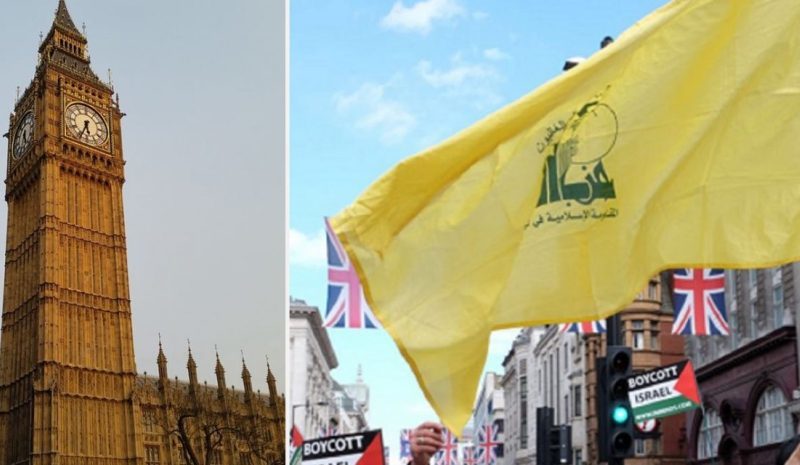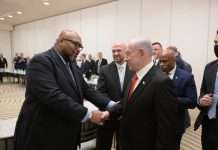UK Parliament Debates Complete Ban on Hezbollah
مجلس العموم (النواب) البريطاني يناقش احتمال وضع حزب الله “بشقيه” على قائمة الإرهاب
The National and Press Association/Friday 26th January 2018
The British parliament has debated widening its ban on the Islamist Lebanese faction Hezbollah amid claims of flaws in the official assessment behind the group’s current designation. The group’s military wing is currently prohibited in the UK, though its political wing remains free to operate – a differentiation that has caused controversy.In 2001, the group’s external security organisation was proscribed, and the ruling was extended to Hezbollah’s entire military apparatus in March 2008. But almost 10 years later, many prominent politicians argue that the current proscription does not go far enough.
The current ban relies on a differentiation between Hezbollah’s political and military wings – in Lebanon the group have ministers in the government, as well as a standing militia of several thousand men. But proponents of the new ban claim this is a false distinction.
Introducing the motion, member of parliament Joan Ryan said “it is an artificial distinction”, and that it was “time to end this dangerous game of semantics”.
UK government policy currently stands against raising the designation on the grounds that any such intervention could destabilise Lebanon, where the group has several MPs and ministers in the government. Prior to Thursday’s debate, Labour MPs were advised to vote against a renewed designation of Hezbollah on the grounds it could damage efforts for peace in the Middle East.
Indeed, the party’s leader and UK opposition leader Jeremy Corbyn has previously drawn criticism for a 2009 parliamentary meeting in which he referred to the group and Hamas as “friends”.Security minister Ben Wallace and his shadow counterpart Nick Thomas-Symonds said it was the right thing on balance to only proscribe the military wing of Hezbollah.
Proscription makes it a criminal offence for people to belong to a named organisation, encourage people to support it, arrange meetings in support of it or wear clothing or carry articles that arouse suspicion an individual is in favour of it.
Speaking in a debate on a backbench motion that Hezbollah should be proscribed in its entirety, Wallace said proscription was not the only tool available to tackle terrorism, the spreading of hatred or inciting violence. He also said that Hezbollah was part of the government and parliament in Lebanon, which presented different challenges compared with other terrorist organisations.
“While the proscription of Hezbollah in its entirety is kept under review, our current position maintains a balance,” Wallace told MPs. “I’ve heard from many of the members today about their view that they are indivisible, that the Hezbollah military and political wing cannot be divided, that they are joined at the hip, that they are centrally led. A Labour party briefing note claimed: “There is a balance between making absolutely clear our abhorrence of using violence to achieve political ends and at the same time encouraging organisations down an effective democratic path.
“Full proscription could be a move against dialogue and meaningful peace negotiations in the Middle East.” It added: “Proscription could prevent the UK or other governments from engaging with the Lebanese government and could lead to a breakdown of diplomatic relations.” But speaking in favour of the ban, Labour MP Ian Austin blasted his own party’s position.
“The organisation has carried out terrorist attacks and racist murders in the Middle East, in Europe and across the world,” he said. “[Hezbollah] is not interested in the compromises that all sides will need to make to bring about a two-state solution. Its sole interest is the destruction of Israel. “The idea Hezbollah is a partner for peace is misguided”. A poll carried out by ComRes indicated that 81 per cent of Britons were in favour of an increased terror designation of the group.




















